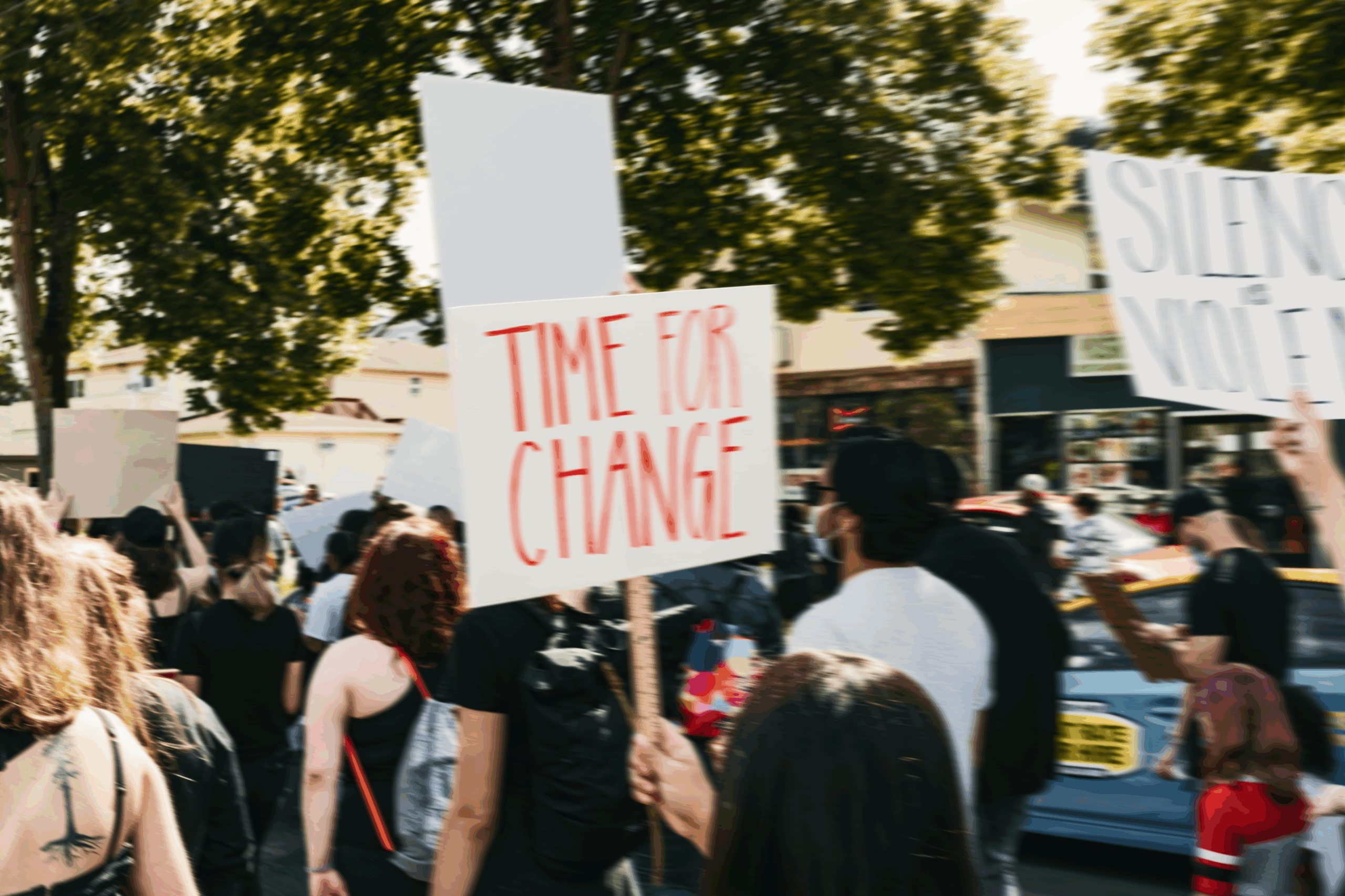Continue Reading
Biggest Finance Newsletter for Women
Join 200,000 other people interested in money, power, culture, and class.
Subscribe
Sometime in the last year, a guy named Bryan Johnson entered the collective consciousness of chronically online people everywhere. He’s a billionaire trying to prolong his life as long as possible using newfangled, expensive technologies like blood infusions from his teenage son and a complete elimination of sugar, carbs, staying up late, and pretty much every other guilty pleasure that makes life worth living in the first place.
After reading more than I wished to know about Bryan’s daily routine, I found myself wondering, “What’s the point of living longer if you follow a routine stricter than a German train schedule?” A life rigidly contained by intense limits and constrictions is not one I’d be itching to prolong.
Bryan Johnson’s story is, ultimately, one about value trade-offs.
>
“Most of life comes down to these types of value trade-offs. The fundamental question is, ‘Is this worth that?’”
I’ll use a personal example: I’m one year alcohol-free, because I realized that I valued feeling good the majority of the time more than a couple of hours of euphoric fun (followed by nearly a full day of pain and discomfort). The absence of alcohol has been a net positive in my life, even if I feel a little less enthused during my rare nights out. In that respect, I’d side with Johnson on the decision that a life without alcohol can be just as wonderful as (if not more than!) a life with it.
Processed sugar, on the other hand, is something I don’t think I’d ever abstain from in its entirety. The joy I experience from anticipating (then enjoying) my dessert in moderation each night doesn’t have any immediate effects on my well-being, and any long-term negative effects will be a price I’m willing to pay to live a life full of desserts.
(I’ll never forget a lactose-intolerant friend I had in college. Every once in a while, she’d order a large cheese Domino’s pizza and a chocolate milkshake and absolutely let it rip—she knew there’d be hell to pay, but, and I quote, “Sometimes it’s just worth it.”)
Some people might look at eating chocolate cake and come to the same conclusion I did about alcohol, depending on how sugar affects their body. (Fortunately, I’ve been mainlining Swedish Fish and Hot Tamales since I was knee-high, so my glucose tolerance is superhuman.)
Most of life comes down to these types of value trade-offs. The fundamental question is, “Is this worth that?”
Part of what the FI/RE community does really well is persuade people to pause and actively ask that question in their own lives—and this is why most FI/RE folks end up coming to the same conclusions. No, a fancy car isn’t worth working a job I don’t like. Yes, my freedom is worth giving up takeout and restaurant meals.
>
“Sometimes, the ‘Things I’m Sacrificing’ side of the scale accumulates more weight than the ‘Thing I’m Striving For’ side.”
It’s also how we’ve ended up with The Millionaire Next Door tropes that all millionaires drive Hondas, and never take vacations, and live in small, modest homes, and buy secondhand clothes—it’s the natural extension of a mindset that says nothing is worth delaying your retirement date.
But much like the Bryan Johnson approach to healthy living highlights where the scales tip in extreme directions, sometimes, the “Things I’m Sacrificing” side of the scale accumulates more weight than the “Thing I’m Striving For” side.
Do you really want to live forever if you can never eat another cookie, drink another beer, or stay up past 8pm ever again?
Do you really want to retire at 40 if you can never get a new car, go out to eat, or take another vacation?
Getting the big stuff right and forgetting the rest
Freedom from income-producing labor is incredible, no doubt, but is the point of life to accumulate as much money as possible while eschewing all worldly pleasures? Are you crowned Frugal King when you’re lowered into the ground surrounded by Vanguard statements reflecting the highest balances? Bill Perkins, author of Die with Zero, would suggest taking things to such extremes is missing the point entirely: The rational approach would be to try to die with nothing left: Leave it all on the field. Spend every last penny.
Much like chocolate cake binges and beer drinking can land you in a world of hurt, so too can taping your AmEx to your forehead and leaning toward any chip reader in your immediate vicinity.
But human discernment—around the value trade-offs of the things that make life fun for you—can’t be prescribed in a personal finance or diet book.
>
“But human discernment—around the value trade-offs of the things that make life fun for you—can’t be prescribed in a personal finance or diet book.”
Could I always take it further? Sure, I could be healthier or save more . But at what cost to my overall happiness? I’ve calibrated a level of commitment that I feel comfortable with, because it allows for a little tomfoolery, too, without sacrificing feeling good most of the time.
We can’t judge our financial decisions (or anyone else’s!) in a vacuum—the broader context matters. When I was eating processed foods for the majority of my meals and drinking alcohol more days than not, the decision to double down on the hedonism with daily desserts looked a lot different. It was making me feel worse, because my baseline was already so low.
Similarly, getting the “big stuff” right with your money can free up a lot of room for fun: A healthy save rate, a decent income, and low fixed costs as a percentage of that income can expiate a lot of sins.
For example, it took me a long time to overcome my guilt around wanting a nice car. I had consumed anti-car rhetoric for so long that the firehouse of information was permanently affixed to my face: all the reasons why luxury vehicles were a waste of money. A sign that your priorities were out of whack. That only “poor people” had nice cars. For years, I accepted this at face value, that my wanton desire for a certain car would go away if I ignored it long enough.
But years passed, and if anything, the desire intensified: It became a symbol of a dream realized. I told myself that if I could meet a few ambitious financial goals, I would take the plunge and get the car.
This summer, I found myself in a different position financially—and I finally bought it. I knew it represented about $60,000 that wouldn’t end up in a brokerage account (an opportunity cost of having an extra $450,000 by the time I’m 65 if it were invested), but given the progress I had already made, that was a tradeoff I was willing to make.
>
“Part of ‘growing up’ financially is embracing the encouragement to explore what’s worth it for you and what’s not.”
It was a clean break from someone else’s ideas about how my money is best spent—and within the context of my income, net worth, age, and save rate, felt like a fairly reasonable choice.
Part of “growing up” financially is embracing the encouragement to explore what’s worth it for you and what’s not. On a related note, this week’s episode is about how having children delays your financial independence goals (and why that’s absolutely not a reason to avoid starting a family!).
We can learn a lot from others’ decisions about where to sacrifice and where to splurge, but ultimately, we must come to those conclusions on our own. You and your priorities are in a constant state of evolution. And while Bryan Johnson might get to live forever, I get to drive my Macan and eat chocolate cake. The important thing is: We’re both optimizing for what we find most valuable.
October 2, 2023
Paragraph
Looking for something?
Search all how-to, essays, and podcast episodes.
Explore
While I love diving into investing- and tax law-related data, I am not a financial professional. This is not financial advice, investing advice, or tax advice. The information on this website is for informational and recreational purposes only. Investment products discussed (ETFs, index funds, etc.) are for illustrative purposes only. It is not a recommendation to buy, sell, or otherwise transact in any of the products mentioned. Do your own due diligence. Past performance does not guarantee future returns.
Money with Katie, LLC.
Terms & Conditions | Privacy Policy
This Site Was Built by Brand Good Time



